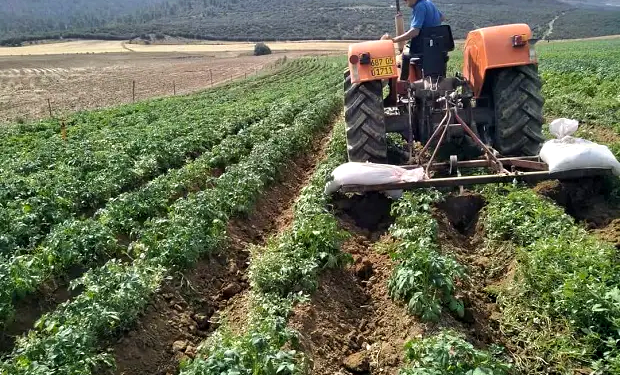The Algerian agricultural sector has been a focal point of development and innovation, with the Agricultural Support Program (PASA) playing a pivotal role in enhancing productivity and sustainability. PASA’s two poles, the Summam Pole dedicated to olive oil production in eight wilayas, and the Southern Pole focused on cultivating dates, chili peppers, and potatoes in Biskra and El Oued, have been instrumental in driving progress. As we approach the final phase of PASA, discussions are underway to extend the program’s reach to other segments connected to industries that have received support from the European Union (EU) in collaboration with the Ministry of Agriculture and Rural Development (MADR) and the National Institute of Agricultural Research (INRAA) in Algeria.
The Next Phase of PASA:
The decision to extend PASA has been made, and it is expected that actions will be initiated from early 2024 to encompass additional sectors related to industries that have benefited from EU support. This expansion will build on the success achieved so far and further boost Algeria’s agricultural potential. Let’s delve into the key aspects of this exciting development.
- Diversification of Supported Industries: In the coming phase of PASA, diversification is at the forefront. While olive oil and the Southern Pole crops have thrived, the program aims to extend its support to other agricultural segments. This diversification includes fruits, vegetables, and even livestock, ensuring a more comprehensive approach to bolstering the agricultural sector.
- Sustainability and Innovation: Sustainability and innovation will continue to be pillars of PASA. The program will encourage sustainable farming practices, such as organic agriculture and efficient water management, while fostering innovation through research and development initiatives.
- Empowering Rural Communities: PASA’s success has not only been in increasing agricultural production but also in empowering rural communities. This extension will focus on improving the livelihoods of small-scale farmers and rural residents by providing them with the necessary tools, knowledge, and resources to thrive in the evolving agricultural landscape.
- Collaborative Efforts: Collaboration between the EU, MADR, and INRAA has been instrumental in the success of PASA. This synergy will continue, with an emphasis on knowledge sharing, technology transfer, and capacity building to ensure long-term sustainability.
- Market Access and Export Potential: The extension of PASA will also prioritize facilitating market access for Algerian agricultural products, both domestically and internationally. This includes efforts to meet quality and safety standards required for export, potentially opening new avenues for economic growth.
Conclusion:
As Algeria gears up for the next phase of the Agricultural Support Program (PASA), there is a renewed sense of optimism in the agricultural sector. With a focus on diversification, sustainability, community empowerment, collaboration, and market access, PASA is poised to continue its transformative journey. By harnessing the expertise and resources of the EU, MADR, and INRAA, Algeria is taking significant strides towards a more robust and resilient agricultural future. The coming years promise to be an exciting chapter in the nation’s agricultural development, and stakeholders are encouraged to actively participate in this endeavor.







